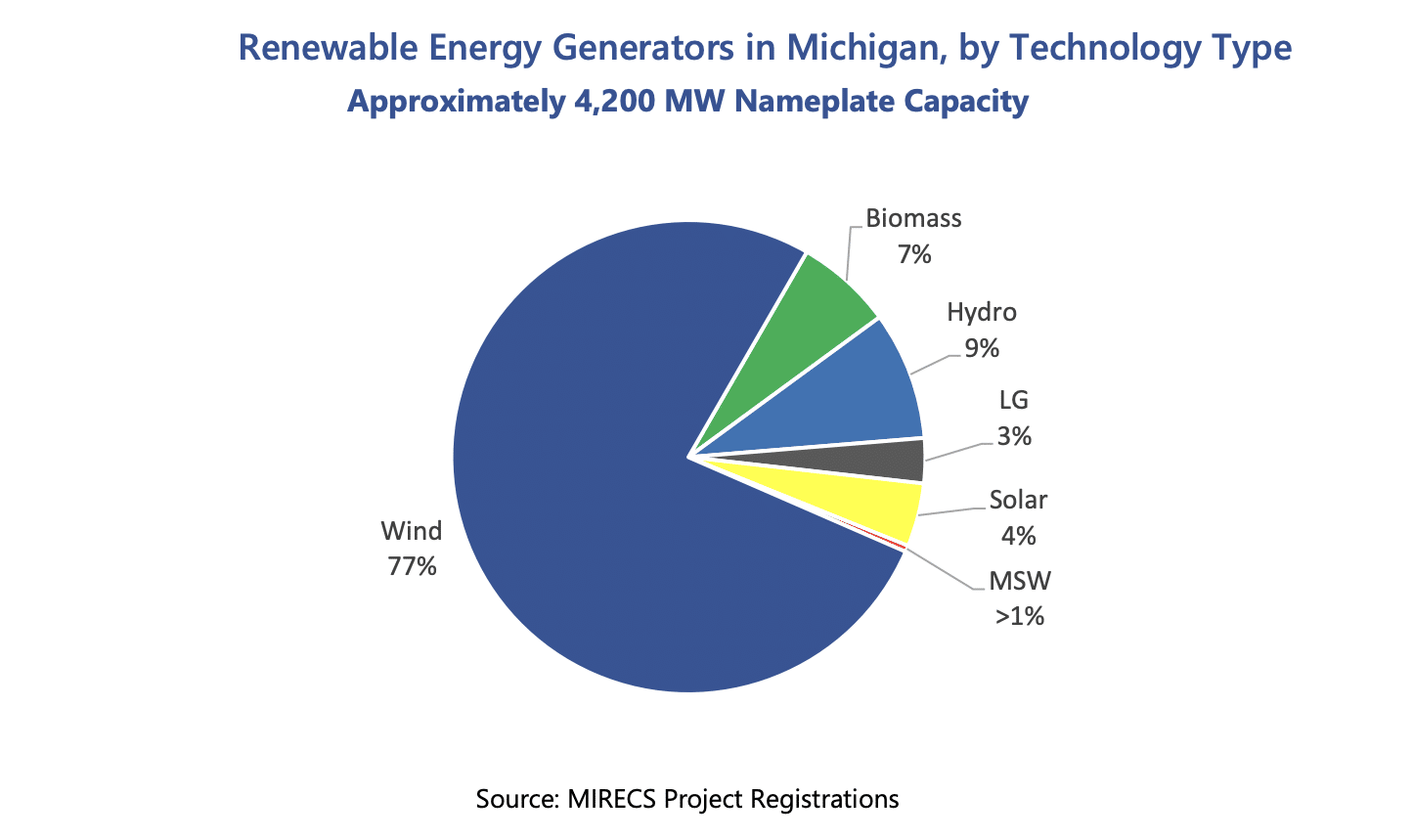Wind Accounted for 77 Percent of Michigan’s Renewable Energy Capacity in 2021

Utility-scale wind turbines accounted for more than three-quarters of the 4.2 gigawatts of Michigan’s renewable energy capacity in 2021, according to the Michigan Public Service Commission Feb. 15 report on the implementation of the state’s renewable energy standard. The agency also issued a report on energy waste reduction, or EWR, program, which revealed that the initiative saved the state about 1.6 million megawatt-hours of electricity and over 6 million thousand cubic feet of natural gas in 2020.
In 2021, utility-scale wind turbines accounted for 77 percent of the renewable energy capacity of 4,200 megawatts. A total of 9 percent were hydroelectric plants, 7 percent were biomass plants, 4 percent solar installations, 3 percent landfill gases, and 1 percent solid municipal waste. The state will also add 725 megawatts of new utility-scale renewable electricity generation, including three wind farms and three solar farms in 2022.
Since 2008 when the renewable energy standard was implemented, more than $5.1 billion has been invested in new renewable energy projects to bring approximately 2,828 megawatts online by 2021. Utilities were mandated to achieve a 10 percent standard for renewable energy by 2015. Legislation enacted in 2016 increased the requirement to 12.5 percent in 2019 and 2020, and 15 percent by 2021. All the electricity providers have met the targets, and are expected to meet their target of obtaining 35 percent of their energy requirements from renewable sources and reducing energy waste by 2035.
Sixty four electric companies, cooperatives, and municipalities spent a total of $294.3 million and gas companies spent $125 million on EWR programs, which are expected to save customers over $1.34 billion over the course of the next 12 years. Also, over $56 million was spent by utilities in 2020 on eligible low-income household programs, an increase from $37.8 million in 2019. EWR programs benefit low-income communities by reducing energy costs and strengthening economic security. Michigan’s EWR standard, enacted in 2008 and amended in 2016, requires gas and electric companies to offer programs that reduce energy use to lower future service costs.
EnerKnol Pulses like this one are powered by the EnerKnol Platform—the first comprehensive database for real-time energy policy tracking. Sign up for a free trial below for access to key regulatory data and deep industry insights across the energy spectrum.
ACCESS FREE TRIAL